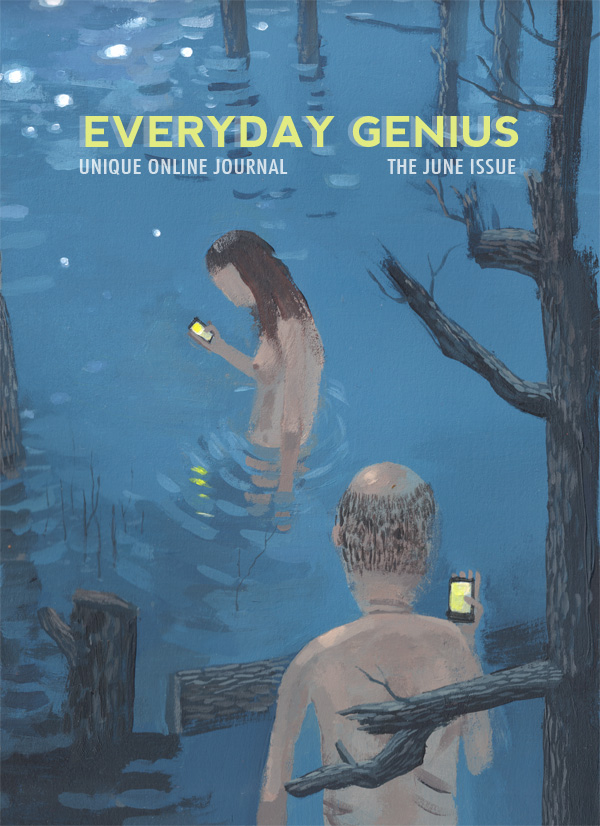“Mystery and Mortality,” Paula Bomer’s book of essays
 Mystery and Mortality: Essays on the Sad, Short Gift of Life is, as the title says, a collection of essays. In this book, Paula Bomer (author of the powerful and unflinching books Nine Months and Inside Madeline from Soho, and Baby from Word Riot) looks at the work of writers ranging from Tolstoy to Ferrante and Kathy Acker to Brian Allen Carr. She combines her reflections about this literature with her mother’s dementia and her father’s suicide and, through this, she runs some painful thought experiments about why we are what we are and do what we do.
Mystery and Mortality: Essays on the Sad, Short Gift of Life is, as the title says, a collection of essays. In this book, Paula Bomer (author of the powerful and unflinching books Nine Months and Inside Madeline from Soho, and Baby from Word Riot) looks at the work of writers ranging from Tolstoy to Ferrante and Kathy Acker to Brian Allen Carr. She combines her reflections about this literature with her mother’s dementia and her father’s suicide and, through this, she runs some painful thought experiments about why we are what we are and do what we do.
It’s very generous, for a writer to expose so much. It’s humbling to publish it.
Here’s the first paragraph:
Yesterday, I walked by a mirror and I stopped and looked into it and thought, or maybe said out loud, as I’m prone to talking to myself, being one of those writers who spends far too much time alone, “I am not my mother,” repeatedly. Then I walked away.
A few of the 15 essays originally appeared here at HTMLGiant before the turn of the decade, when Paula was a contributor here known as “pr.” Some readers might remember her being lauded for all that scholarship on Flannery O’Connor.
There’s an introduction by Meg Tuite where she says there’s:
no milquetoast in … anything she’s written. Straight on ferocity that doesn’t reek of the formaldehyde of sodden decorum and martyr-esque, flushed vaginas that pop out babies with a smile and a song. Bomer’s work rakes through brutality.
Plus, check out this cool spine:

The book is available now from Publishing Genius, and right now it’s still just $10 (+ $3 shipping) through this week.
Pre-Order HOW TO CATCH A COYOTE by Christy Crutchfield So We Can Talk About It
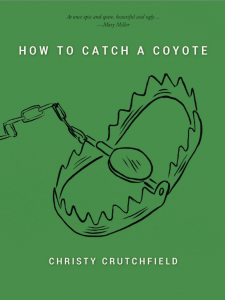
How to Catch a Coyote
a novel by Christy Crutchfield
Publishing Genius Press
208 pages, paperback, 6 x 8″
ISBN: 978-0-9887503-8-8
July 29, 2014
Within minutes of pre-ordering How To Catch a Coyote by Christy Crutchfield, I was handed an ARC by its publisher, Adam Robinson. I began reading it in a dentist chair (which is definitely a kind of bath, hence the category label on this post) and finished reading it a day later, at the expense of all other work, so absorbed was I in this multivalent narrative of many years in the life of a very difficult family. Sharp cuts in chronology and a kind of chill resistance to poignancy and emotiveness distinguish the novel from the many that expect our empathy or identification as a matter of course instead of asking, as this book does, whether we can possibly empathize or identify with these characters, and what that even means, and whether we even want to.
I was about to get a filling replaced because one fell out and left a hole with a sharp edge that trapped little bits of whatever I was eating no matter how much I tried to chew on the left side only. This turned out to be a great place to start reading How To Catch a Coyote because it is full of teeth and traps.
When I typed multivalent narrative above, which was an edit of the hackneyed layered narrative, what I hoped I meant was from many angles since the book shifts among second and then mostly close third-person POV, but close to all different characters. It turns out I meant nothing of the sort, since multivalent actually means having or susceptible to many applications, interpretations, meanings, or values. This is much more to the point. The POV, the dips and skips of chronology, and other formal devices that you’ll see for yourself are not, IMO, the thing this novel is, though they certainly incandesce around and expertly minister to the thing that this novel is. The thing that this novel is is, is the susceptibility of it, of us, of the characters in the face of not knowing for sure.
No spoilers! I want to wait until you’ve read it to talk about it more. This novel is very very topical, and it will be topical forever or at least as long as there are fathers and daughters, and mothers and daughters, and fathers and sons, and mothers and sons, and–most crucially, I would hazard, but we can talk about it more–brothers and sisters (bcc: Ronan Farrow or does that give too much away?).
Pre-order this book so we can all talk about it a lot. I think it would be a really good book to talk about with college students, and I think it would be a really good book club book, too. Adam and I discovered that we had diverging takes on a single sentence, is how much there is to talk about in this book. I can’t wait until all of you read it!
I Read Scarecrone in the Bath
I read Scarecrone by Melissa Broder in the bath. Originally, I bought every copy of Scarecrone from Adam Robinson but then I sold them all back to him for the same price, except one, which I kept. That is the copy of Scarecrone I read in the bath.
I had a notebook and pen by the bath because I knew it would be an experience that I would want to express something about, even though I’m uneasy with experiences and expression.
Earlier, I’d read an interview of Melissa Broder by Shane Jones in The Believer about food and food rituals. The interview answers are very honest and detailed. I became upset as I read it because it put me in touch with a kind of radical normalcy in my thoughts and behaviors around food and my body. I began to wonder, as I’ve wondered before, if that normalcy has to do with how many hours & hours I spent in the bathtub as a child and teen, around my own naked body but not confronted with it. As a child and teen, in the bathtub, I usually either read, in which case I saw my headless naked body in the lower periphery, or I did things to make my body feel or do things, in which case I guess I closed my eyes or saw my body through unusual filters.
(I don’t know how to describe any of this in non-dualist ways, especially from the bath point of view since–unlike in the mirror where you see everything or mostly your face– in the bath you see your body but not your head where your brain is, so that the body really seems like something apart.)
I thought about how I have no discipline about food–no habits–but I do have a modicum of self-control. A lot of the interview was about bingeing, which I’ve never done, and which must require even more discipline than purging or limiting food. Bingeing must require a kind of vision, or drive, that will only work via an extreme amount of discipline that I’ll never have.
I thought about how uninterested in purity I am, especially when it comes to food and the body, which is part of what upset me about the interview. I have been slow to read Scarecrone in part because it seems pure and honest, and I am uncomfortable with purity and not very honest. Part of that dishonesty has probably led me throughout my life to deny the existence of any bad feelings about my body. Shame itself is so pure, or at least it’s predicated on the desire for purity. I am not honest about shame I might feel, or ways that I might wish I were pure or that something in the world were pure.
Still, I wanted to read Scarecrone in the bath. I thought something would happen to me if I did because I read reviews that said it is a book of spells, and I am most vulnerable to spells in the bath. I ran the water and realized it was much too hot. For the spell to work, I thought, maybe it would be better to sit naked on the cold toilet seat beside the bath but not get in, and read Scarecrone like that. Or maybe for it to work I should light candles and put them around the bath.
A Few Questions for Edward Mullany
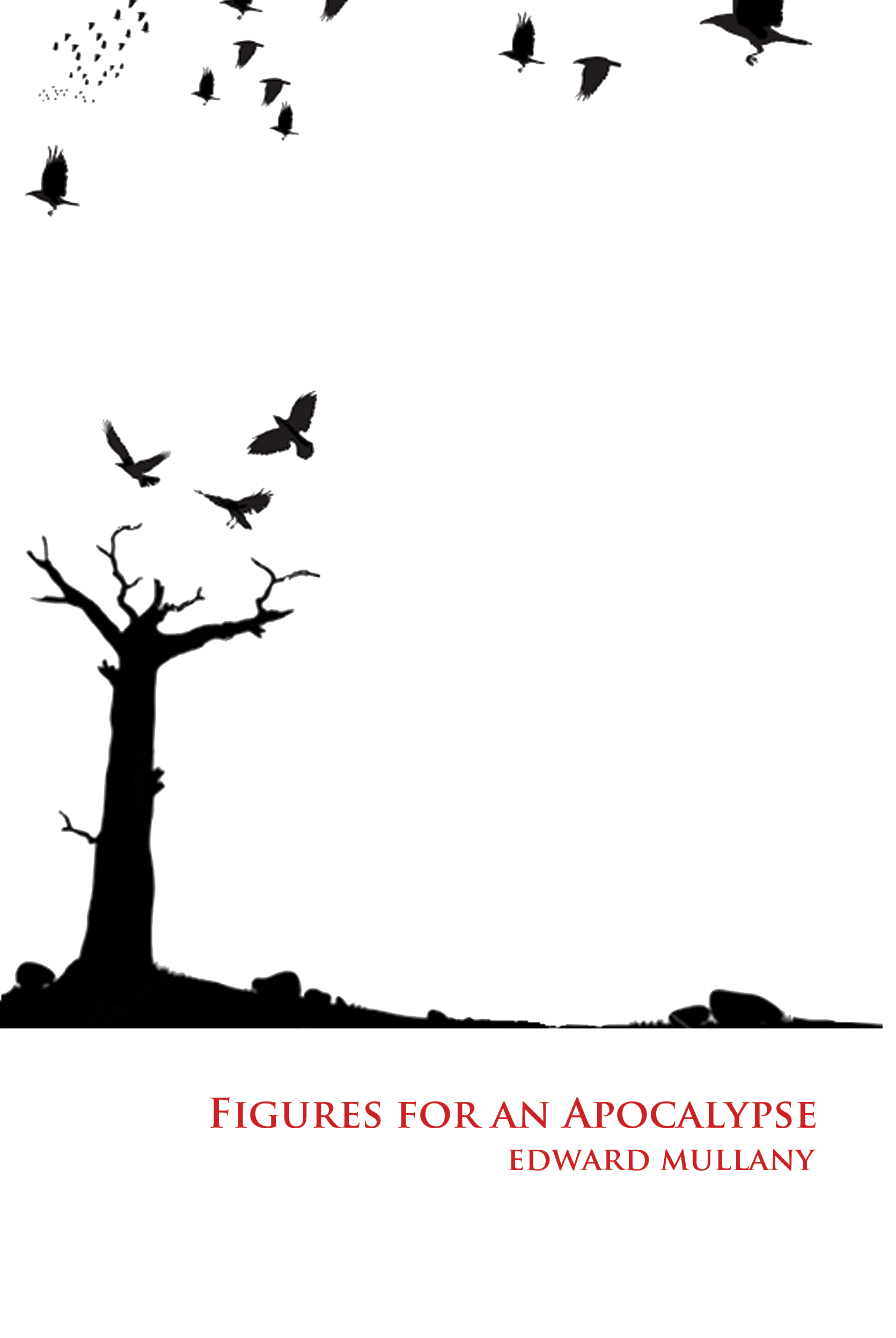
This week Edward Mullany’s second book came out on my own press, Publishing Genius. It’s called Figures for an Apocalypse, and the stories in it (and poems that tell these stories) exist on the perimeter of Cormac McCarthy’s The Road, before and after the inciting incident. Like there’s one called “The Parade of Rabbits” that goes “No one // saw it. /// It happened / after everyone died.” I read Edward’s manuscript for the first time last summer, while I was on an Adirondack camping trip with my family. Lots of kids, so I floated out on a kayak on a still pond. By the time I drifted to shore I’d read it through and thought it was the best possible setting. In the intervening year and a half I’ve read the book in handful of other settings—at my desk, on the john, on the road, in long and short sittings—and every different setting also seemed ideal. Part of the magic of everything Edward does, I think, is how he brings the reader/viewer into his own mindscape. I asked Edward a few questions.
Is there humor in this book?
Yes, though not much. But it’s important that it’s in there. If the book had no humor in it, it would lack resonance because it would indulge in a pessimism that isn’t real. The only place that I can imagine humor being impossible is hell. Like, the actual “eternal fire,” in a religious sense. And I’m not trying to tell a story about hell. What I mean is that the book is trying to tell a story about the human situation as it exists in temporality (as opposed to eternity). And there is always the possibility of humor in this situation – the one that exists in time. In the same way that there is always the possibility of hope. Not hope that we won’t suffer or won’t die, but rather hope that our sufferings and deaths can have meaning. READ MORE >
Proving Nothing to Anyone
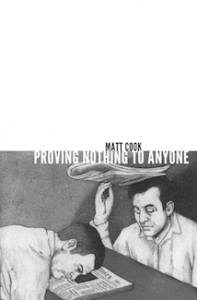 Proving Nothing to Anyone
Proving Nothing to Anyone
by Matt Cook
Publishing Genius Press, July 2013
86 pages / $13.95 Buy from Publishing Genius
Matt Cook’s newest collection of poetry opens with a telephone call: “The dry cleaner calls up and says he’s taking responsibility for my pants.” This line comes across as particularly mundane, even unpoetic, but starting a poem like you’d start a conversation has a long literary history. Back in 1959 Frank O’Hara wrote a whole manifesto about writing poetry this way. Of course, O’Hara was not entirely serious when he wrote “Personism: A Manifesto,” but the concept of directly placing the poem “Lucky Pierre style” between the poet and the reader has had a lasting impression on American poetics and Matt Cook’s Proving Nothing to Anyone reflects this pedigree.
Much like the poetry of Frank O’Hara, the poetry in Matt Cook’s Proving Nothing to Anyone has an air of artlessness to it, but this is a carefully calculated and constructed facade. Frank O’Hara’s work, especially poems like ”The Day Lady Died” are line after line of the banal, which abruptly shifts to the significant, creating a sense of the poetic sublime. The best of Cook’s poems are doing a similar thing. Take Cook’s “The Emotional Center” as an example. It starts off with the lines “Don’t mess with me right now, I’m all stirred up with emotion, man. / I’m in a rage right now because I can’t find my car keys” and continues to describe all the annoyances of life which are piling upon the speaker of the poem. The poem ends with this great description of anxiety:
And you’ve got all these emotional condiments,
And you take one bite and all this emotion oozes everywhere,
And you’ve got emotion running down your chin and your arm. …
Even though the words seem off the cuff, the perceptiveness of the lines really strikes the reader. The poetry in this collection reads as if Cook is on the other end of the telephone, or Gchat, or whatever popular means of communication is the equivalent of Frank O’Hara’s telephone analogy, and what Matt Cook has to say is really deep just as all 2 AM conversations have some element of deep importance beneath all the talk of bars and television.
July 5th, 2013 / 11:00 am
Why Did Mud Luscious Close? Getting busy with JA Tyler
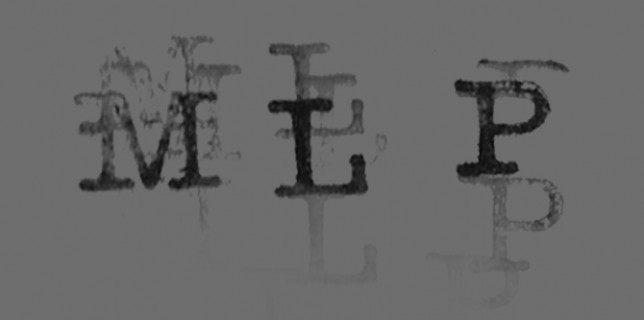
Hello, here is an interview that I did with J.A. Tyler. We started it via email soon after the announcement that his press, Mud Luscious, would have to close down. It’s fairly long. First we talk about all the things he did with MLP, then we get into the nitty gritty of what happened that caused its demise. I really appreciate that he would do this. I’ve asked other presses to do a similar post mortem but they’ve declined. It’s not easy, I know. You run a press, you feel an almost paralyzing responsibility to the people you publish. You have a book that does well, you’re fucked because your responsibilities seem to increase. It’s not a thankless job, art — not by any means — but it’s a tough one. And the place where art intersects with business IS thankless unless your strength is on the business end of things. Anyway. Get into this interview. Remember MLP for its growth and its commitment and its problems.
Hi, J. A. How are you feeling? Would it be an understatement to say you’re sad?
Yes: Sad, overwhelmed, frustrated, sick. A million things all at once.
Well, we started this interview back in April, so it’s been a while. How are you feeling about things now? Is the remorse turning to relief? Have you started to get a glimpse of what a normal life can be yet?
Normal life, probably not. There is this residual layer of guilt that I presume will take much longer to unwind from wherever it is in me. I do see how much time I spent doing MLP related things, both on the “free time” I’m now allotted and in the size of the hole it left.
I Don’t Know Should Matthew Savoca Get a Dog
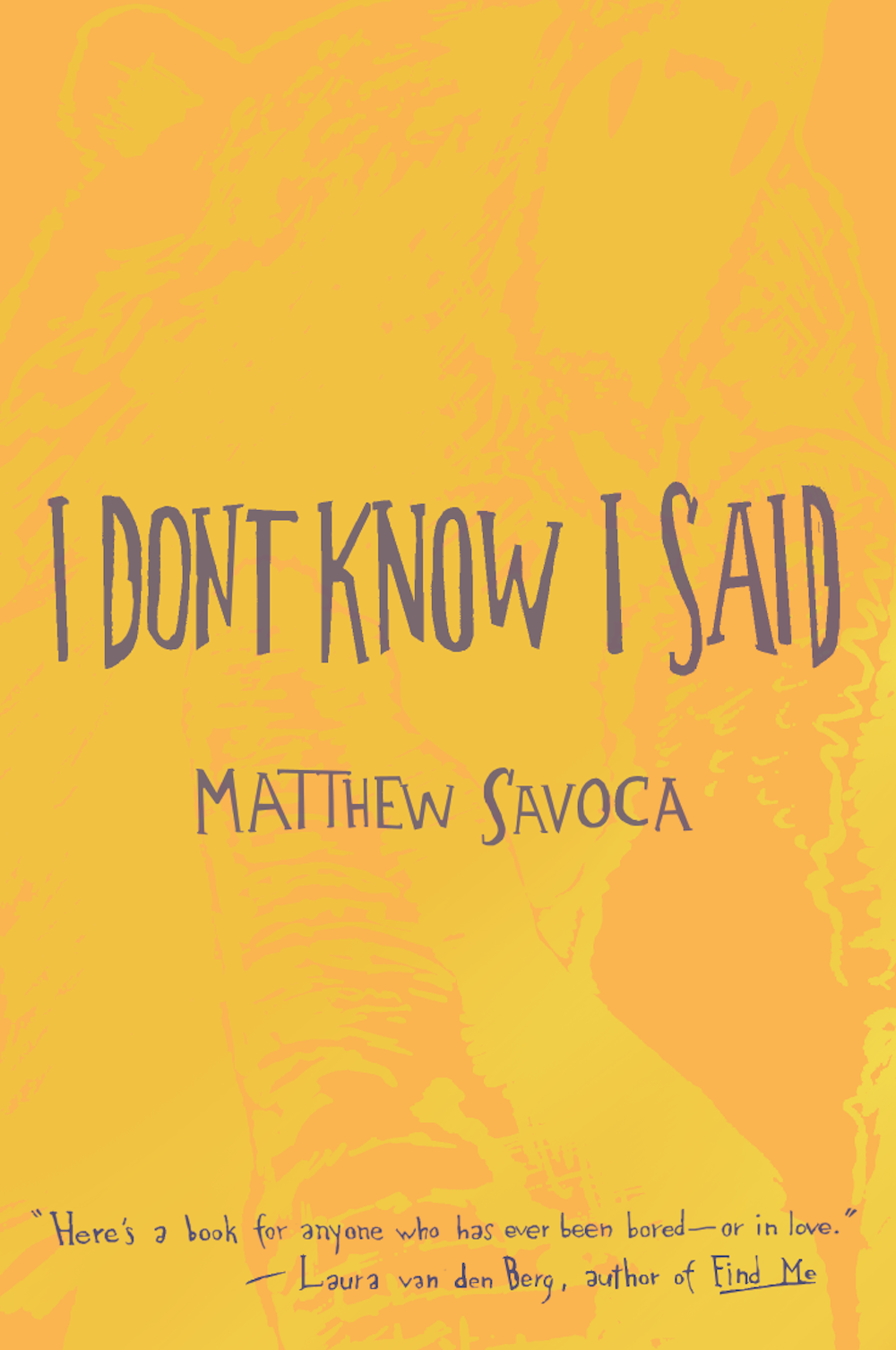
HTMLGiant fave Matthew Savoca just came out with his novel yesterday, improbably titled I Don’t Know I Said. Laura van den Berg said it’s a book for anyone who has ever been bored. Michael Kimball said it’s got more charm than it should ever have. Scott McClanahan said it’s like eating baby food with a loved one. Chris Killen said he’d recommend it to anybody. The book is about Arthur and Carolina, youths in love, trying to do it right. Here’s an interview with Matthew, if you’re bored. On Friday evening Matthew will read the entire novel and broadcast it at Everyday Genius.
Hi Matthew.
Hi Sarah.
A Mountain City of Toad Splendor by Megan McShea

Yeah but come on, that’s the title of a book right there.
As Blake put it, it’s as if Megan studied at the Harvard for Ooh, and as Jeff Jackson said nicely, “You’re never sure what’s around the next comma.”
Lucy Corin said she remembers Megan’s dreams as if they were her own.
This book comes out today. It’s poetry and microfiction. It’s just $9 at PGP. And there are videos about it. Cool.
March 19th, 2013 / 8:37 am
Say Poem
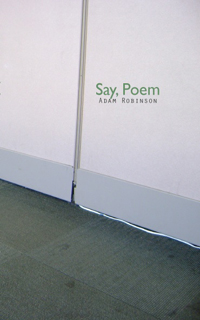 Say Poem
Say Poem
by Adam Robinson
Awesome Machine/Publishing Genius Press, 2010
76 pages / $4 Buy from Publishing Genius
Adam Robinson is one of only four or five writers I know named Adam, but he’s the only one with the last name of Robinson. Adam Robinson runs a press named Publishing Genius (the only one named that) and I’m inclined to agree. Robinson has been publishing some pretty awesome writing for the last few years. I’ve seen him read a few times, and I have to say he’s one of the most entertaining readers named Adam I’ve seen. If he’d take his shirt off, he’d probably be in the top six.
A lot of people use words like “meta” when talking about writing, and it would certainly be appropriate when describing Robinson’s Say Poem, except I don’t like the word “meta.” “Meta” killed my father. It was during a hunting trip in New Jersey. “Meta” said it was an accident; he said he was aiming for a deer. My father looked nothing like a deer. For one thing, he was slightly taller and had fewer legs. For another, he was asleep in his bunk. So instead of using that word, I’ll use “George”, which was my father’s name, to describe Robinson’s collection. He would’ve liked that. The book is very George. Robinson is commenting on the difference between poetry on the page and poetry in the ear in a very George kind of way. The book is split into two sections, two long poems, really: “Say Poem” and “Say Joke”. The George-conceit of the first poem is that it is a text of Robinson performing several short poems. It includes often-very-George-commentary, light stage directions, banter Robinson would use, theoretically, between shorter poems within the longer section, either to add context to the poems themselves, or to keep the flow of the collection going. Robinson manages to do this without intruding on the poems too much. My father used to say that it’s not what you say it’s how you say it. He used to say that, but it’s been so long since I’ve heard it, I don’t even remember what his voice sounds like. Isn’t that sad? Some of Robinson’s poems are sad, too.
September 21st, 2012 / 12:00 pm
Everyday Genius: The June Issue
(This is my first post here in a while, ugh, and it’s lame that it’s about PGP, but dang I’m all wound up in excitement for this, so why not, and plus it’s a good deal.)
To celebrate The June Issue, Everyday Genius’s first ever print issue, I’m giving a prize to three people who order it before Friday, June 1 (previous orders are being entered to win as well). The prize is a PGP care package, which includes recent books Falcons on the Floor by Justin Sirois (review at The L Mag), Meat Heart by Melissa Broder (review at The Rumpus), Rachel B. Glaser’s Pee On Water (just reviewed brilliantly at The Nervous Breakdown). ALSO included will be Joe Hall’s Post Nativity and Stephanie Barber’s book/DVD these here separated. ALSO also included, Joseph Young’s Easter Rabbit and David NeSmith’s El Greed. Finally ALSO also also included, a PGP tote and a PGP koozy cuz why not cuz it’s summer. READ MORE >


